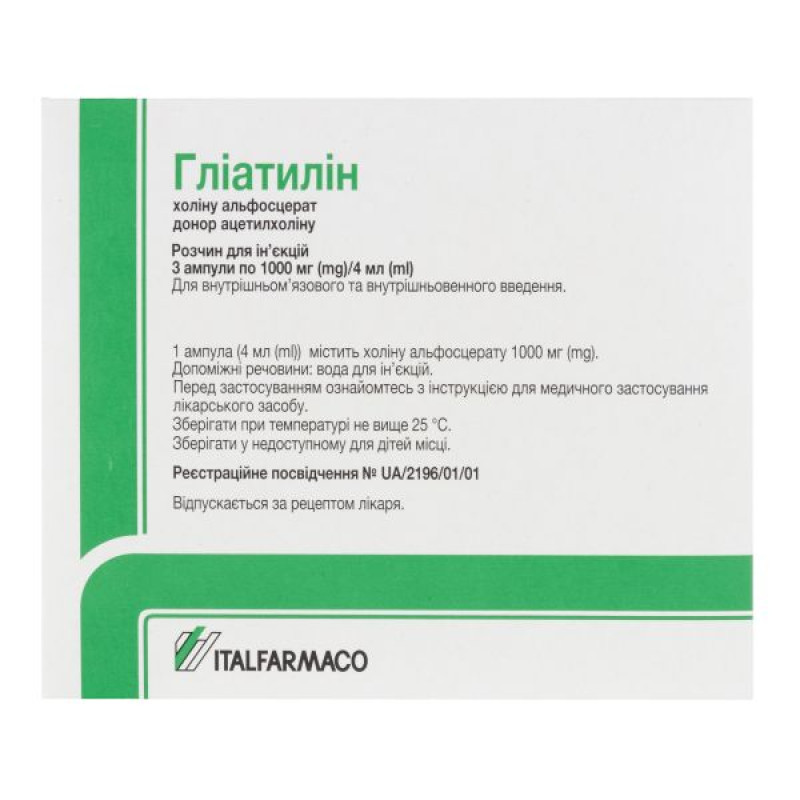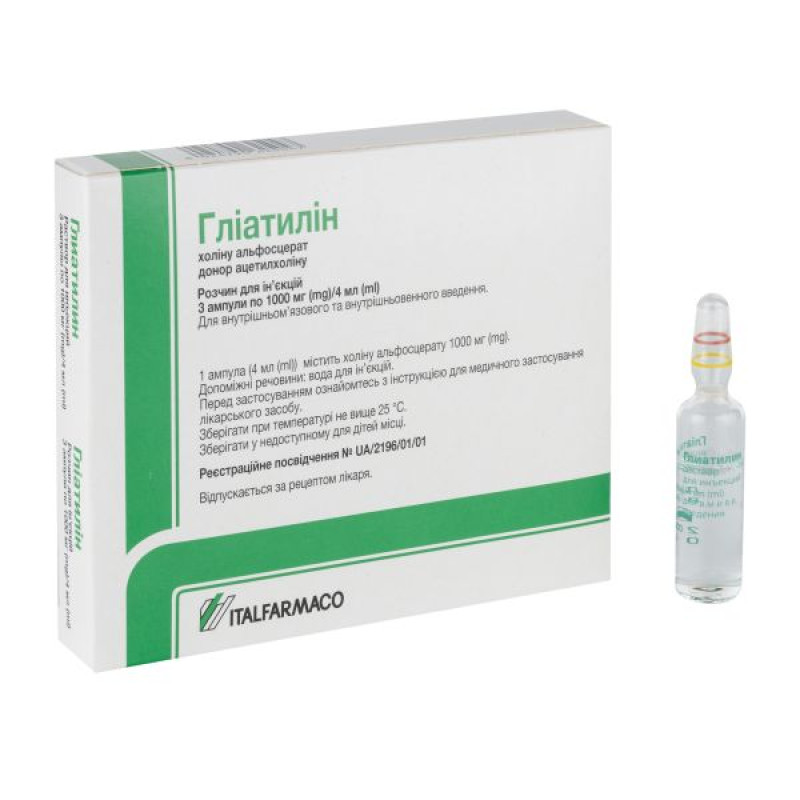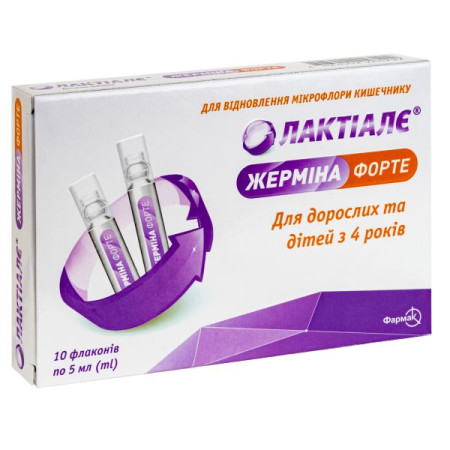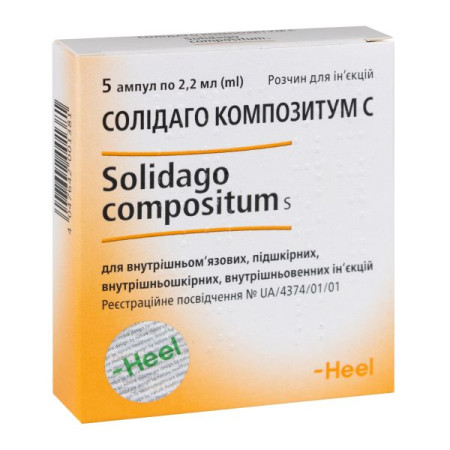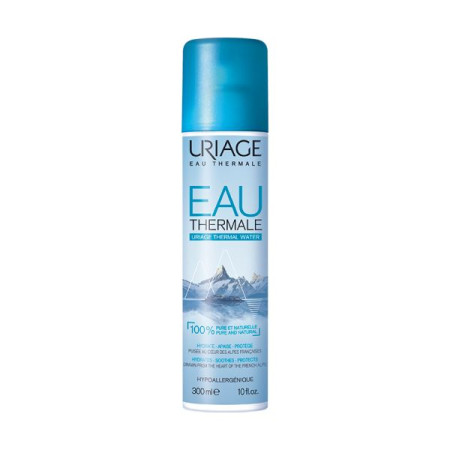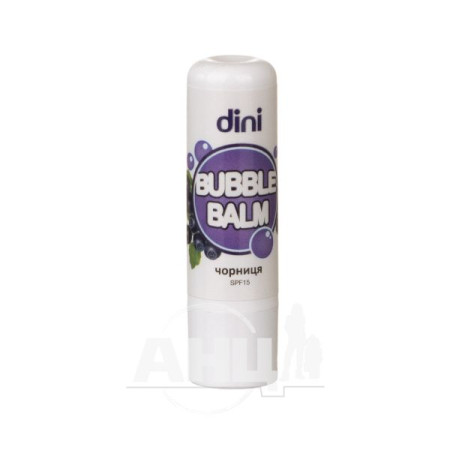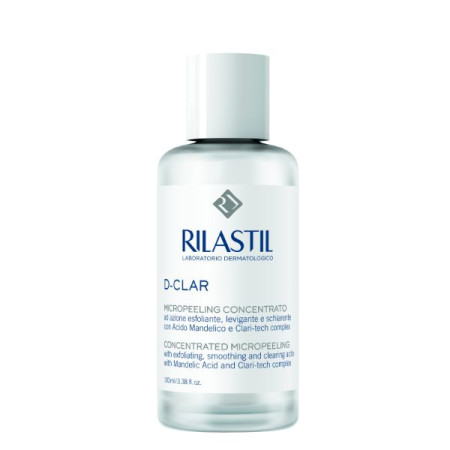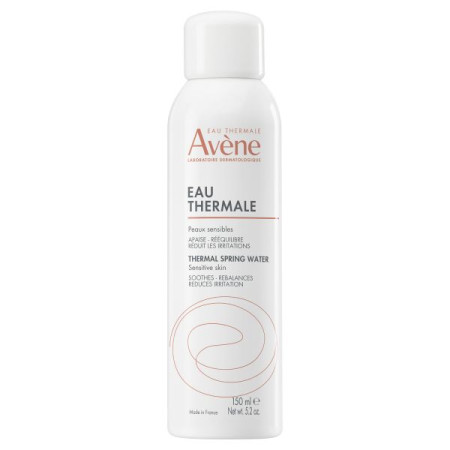Gliatilin solution for injection 1000 mg/4 ml ampoule 4 ml No. 3
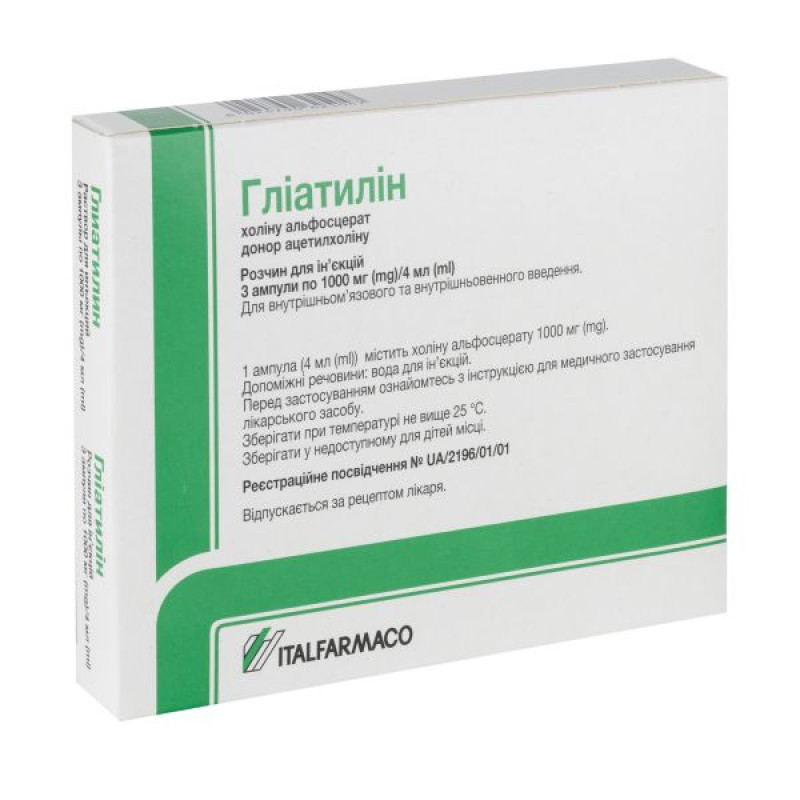
Instructions Gliatilin solution for injection 1000 mg/4 ml ampoule 4 ml No. 3
Composition
active ingredient: choline alfoscerate;
4 ml of solution contain choline alfoscerate 1000 mg;
excipients: water for injections.
Dosage form
Solution for injection.
Main physicochemical properties: transparent colorless solution.
Pharmacotherapeutic group
Agents affecting the nervous system. Parasympathomimetics. Choline alfoscerate. ATX code N07A X02.
Pharmacological properties
Pharmacodynamics
Gliatilin is a drug belonging to the group of central cholinomimetics with a predominant effect on the central nervous system (CNS). Choline alfoscerate as a choline carrier and a precursor of phosphatidylcholine has the potential to prevent and correct biochemical damage, which is of particular importance among the pathogenic factors of psychoorganic involutional syndrome, i.e. it can affect the reduced cholinergic tone and the altered phospholipid composition of nerve cell membranes. The drug contains 40.5% metabolically protected choline. Metabolic protection ensures the release of choline in the brain. Gliatilin has a positive effect on memory functions and cognitive abilities, as well as on indicators of emotional state and behavior, the deterioration of which was caused by the development of involutional brain pathology.
The mechanism of action is based on the fact that when choline enters the body, alfoscerate is broken down by enzymes into choline and glycerophosphate: choline takes part in the biosynthesis of acetylcholine - one of the main mediators of nervous excitation; glycerophosphate is a precursor of phospholipids (phosphatidylcholine) of the neuronal membrane. Thus, Gliatilin improves the transmission of nerve impulses in cholinergic neurons; has a positive effect on the plasticity of neuronal membranes and the function of receptors. Gliatilin improves cerebral blood flow, enhances metabolic processes in the brain, activates the structures of the reticular formation of the brain and restores consciousness in traumatic brain injury.
Pharmacokinetics
On average, almost 88% of the administered dose of Gliatilin is absorbed. The drug accumulates mainly in the brain (45% of the drug concentration in the blood), lungs and liver. Elimination of the drug occurs mainly through the lungs in the form of carbon dioxide (CO2). Only 15% of the drug is excreted in the urine and bile.
Indication
Acute period of severe traumatic brain injury with predominantly brainstem level of damage (impaired consciousness, comatose state, focal hemispheric symptoms, symptoms of brainstem damage).
Degenerative-involutional cerebral psychoorganic syndromes or secondary consequences of cerebrovascular insufficiency, i.e. primary and secondary disorders of mental activity in the elderly, characterized by memory impairment, confusion, disorientation, decreased motivation and initiative, decreased ability to concentrate; changes in the emotional and behavioral spheres: emotional instability, irritability, indifference to the environment; pseudomelancholia in the elderly.
Contraindication
Hypersensitivity to the drug or its components.
Psychotic syndrome, severe psychomotor agitation.
Pregnancy or breastfeeding.
Interaction with other medicinal products and other types of interactions
Clinically significant drug interactions with other drugs have not been established.
Ability to influence reaction speed when driving vehicles or other mechanisms
The drug does not affect driving or operating other mechanisms.
Use during pregnancy or breastfeeding
The drug is contraindicated for use during pregnancy or breastfeeding.
Method of administration and doses
In acute conditions, Gliatilin should be administered intramuscularly or intravenously (slowly) at a dose of 1 g (1 ampoule) per day for 15 to 20 days. Then, after the patient's condition has stabilized, switch to the dosage form of the drug in capsules.
Children
There is no experience with the use of Gliatilin in children.
Overdose
In case of an overdose of Gliatilin, which may manifest as nausea, anxiety, agitation, insomnia, the dose of the drug should be reduced. Therapy is symptomatic.
Adverse reactions
The drug is generally well tolerated even with prolonged use. Injection site reactions are possible. During the first days or weeks of treatment, the following adverse reactions may occur: anxiety, agitation, insomnia. These symptoms are transient and do not require discontinuation of treatment, but a temporary dose reduction may be necessary.
Nausea (mainly due to secondary dopaminergic activation), decreased blood pressure, headache, very rarely abdominal pain and short-term confusion may occur. In this case, the dose of the drug should be reduced.
Hypersensitivity reactions are possible, including rash, itching, urticaria, angioedema, and skin redness.
Expiration date
5 years.
Storage conditions
Store at a temperature not exceeding 25 °C out of the reach of children.
Packaging
4 ml in an ampoule, 3 ampoules in a plastic container, 1 container in a cardboard box.
Vacation category
According to the recipe.
Producer
Italfarmaco S.p.A., Italy.
Location of the manufacturer and its business address
Viale Fulvio Testi, 330, 20126 Milan (MI), Italy.
There are no reviews for this product.
There are no reviews for this product, be the first to leave your review.
No questions about this product, be the first and ask your question.







